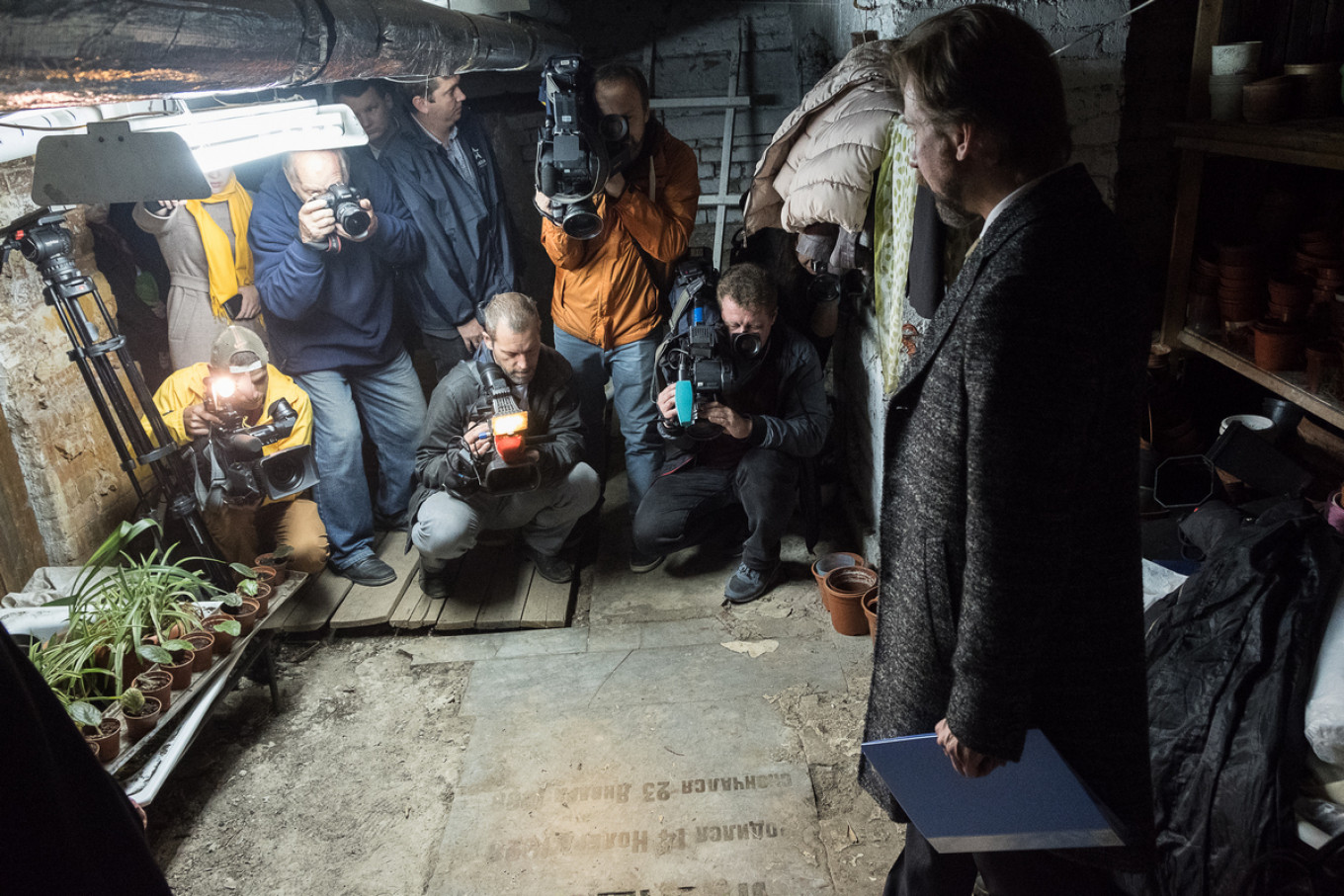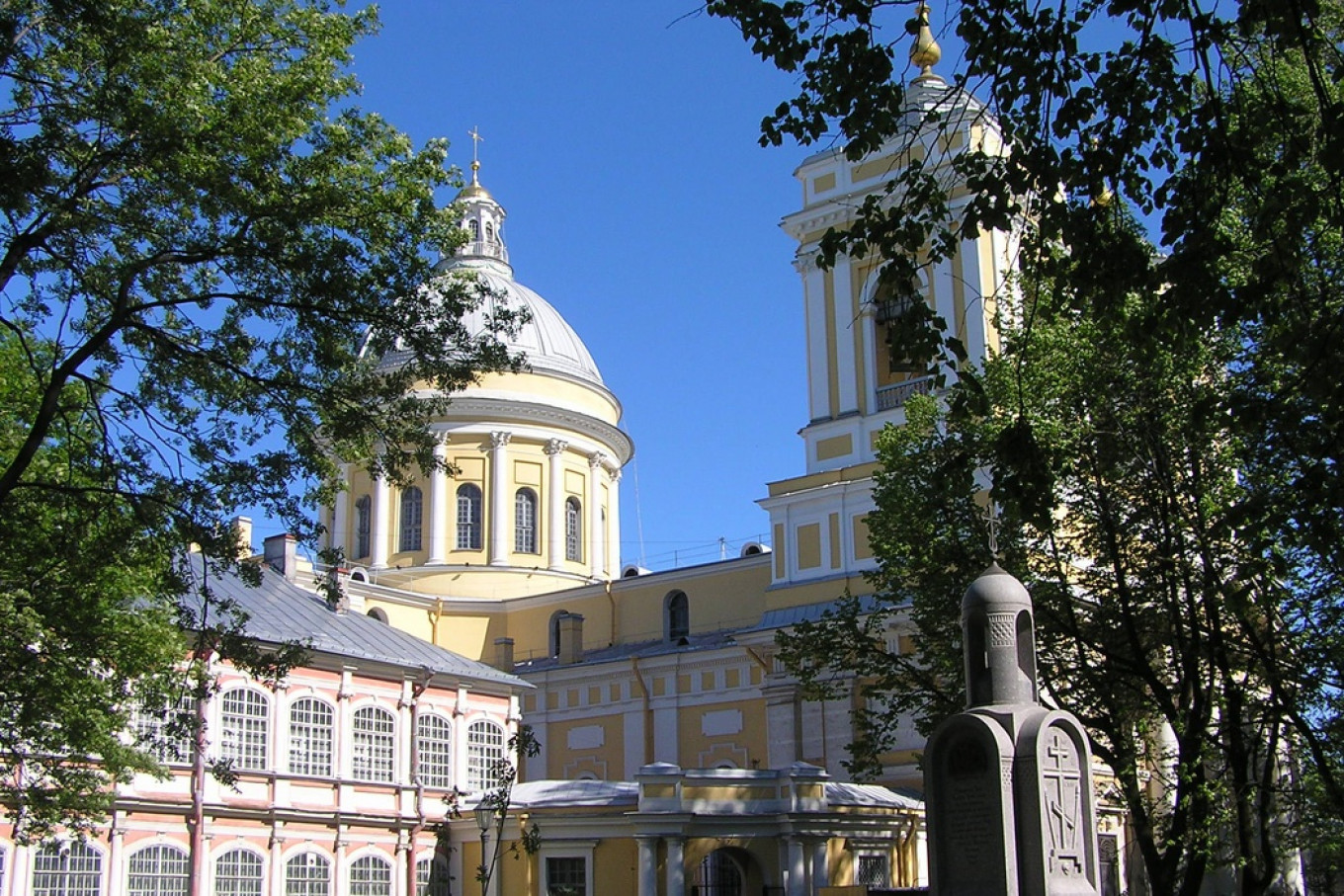The tomb of a 19th-century figure behind legislative statutes that led to the freeing of Russia’s serfs has been discovered in St. Petersburg, Interfax reported.
Yakov Rostovtsev, a career military man loyal to the imperial family, chaired a commission tasked with drafting rules that led to the great emancipation of 1861. Rostovtsev died a year before Tsar Alexander II adopted the policy, which abolished landowners’ power over the serfs.
 mitropolia.spb.ru
mitropolia.spb.ruRostovtsev’s sarcophagus was found during restoration works at an 18th-century cathedral, Interfax reported Friday, citing Alexei Odintsov, the head of the project.
Odintsov said 31 additional tombs have been found at the Feodor Novgorodsky Cathedral of 1748, including 26 belonging to a Georgian imperial family.
 visit-petersburg.ru
visit-petersburg.ruThe cathedral makes up part of the Holy Trinity Alexander Nevsky Monastery, more commonly referred to locally as the lavra, a word for a large and important Orthodox monastery. The complex was founded by Peter the Great in 1710 and houses the graves of Fyodor Dostoevsky, Pyotr Tchaikovsky and other famous Russian composers and writers.
The tombstones will be displayed behind bulletproof glass, Interfax reported.
